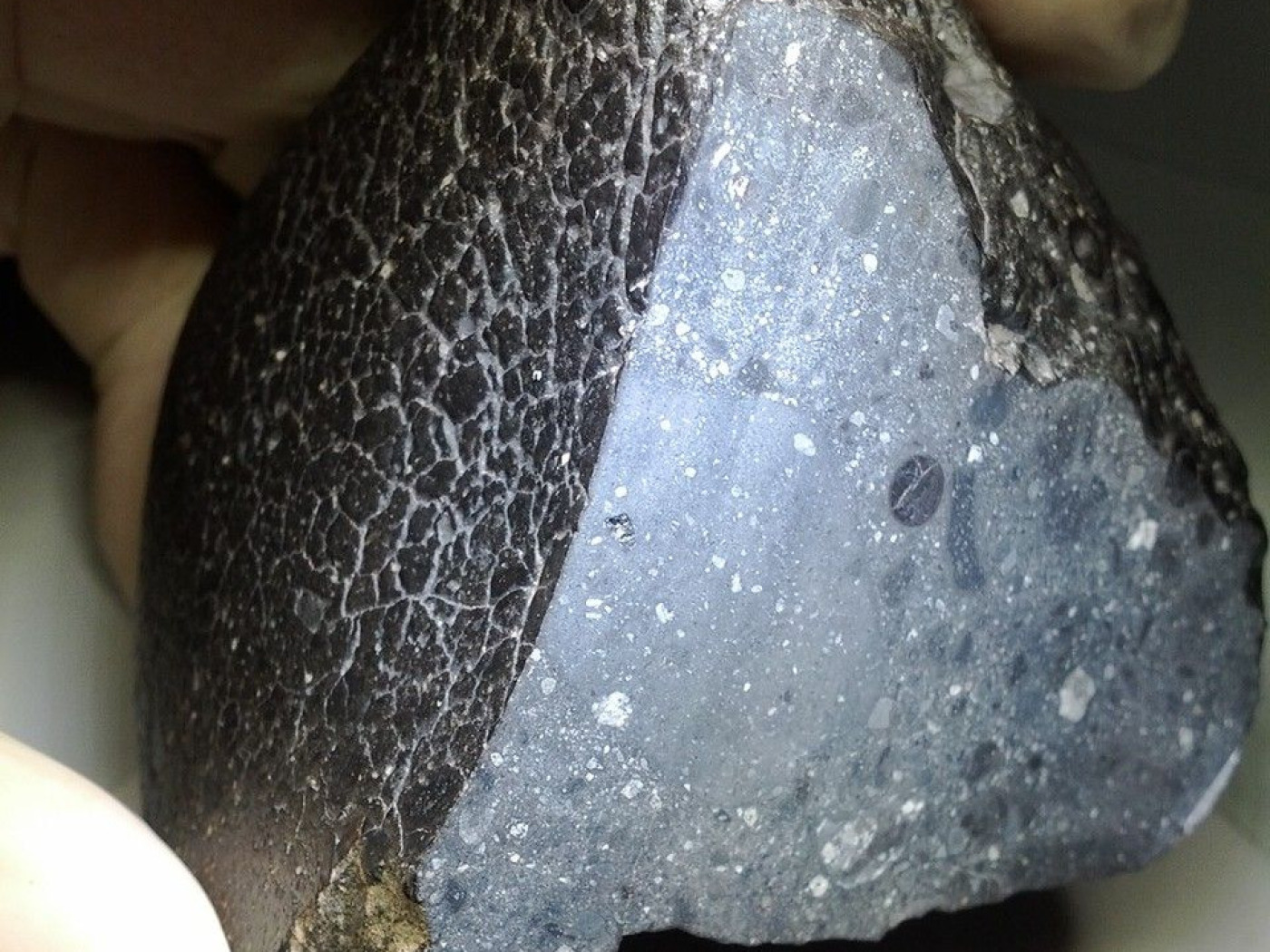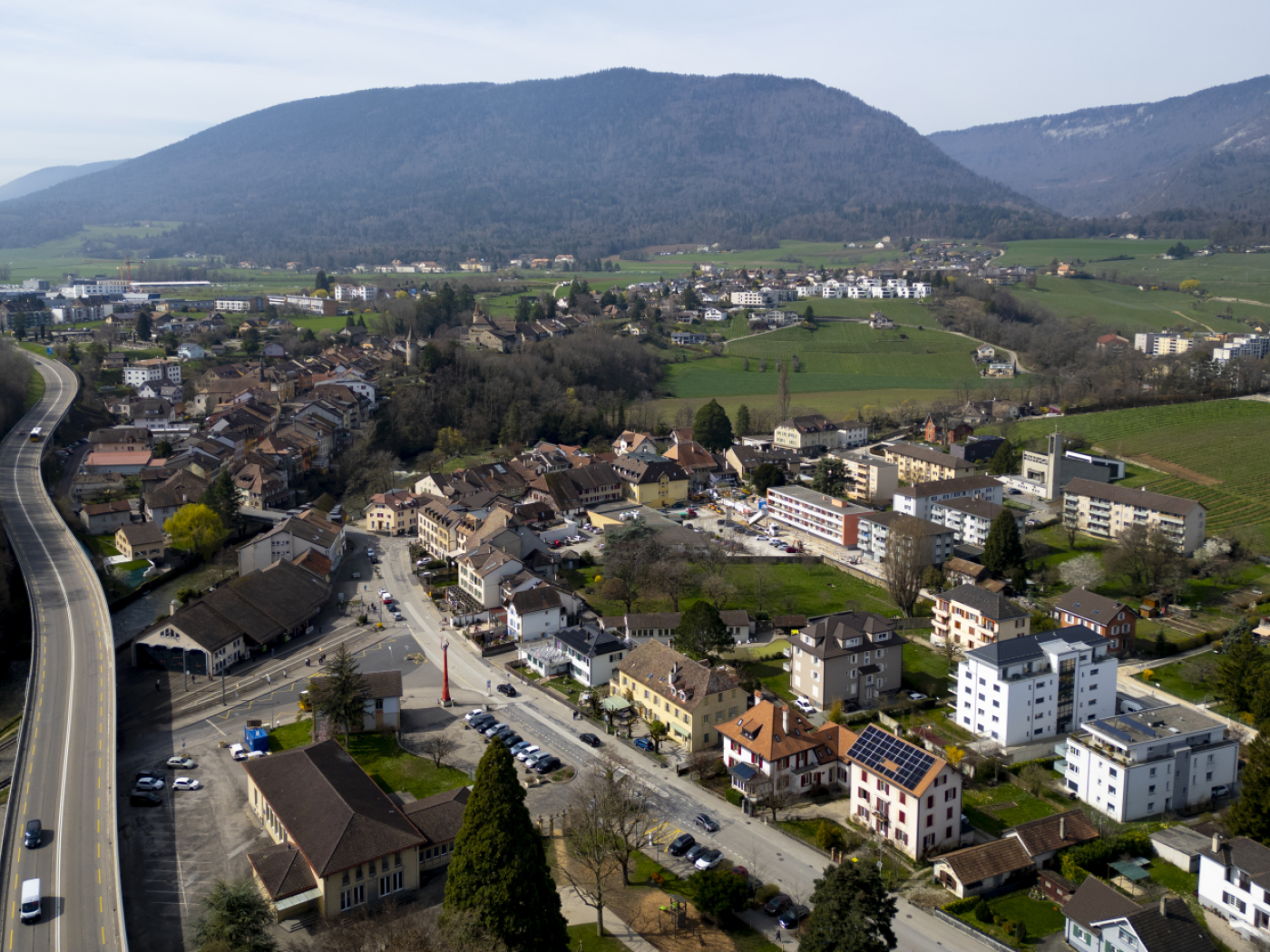First traces of water on Mars dated back to 4.45 billion years ago

While analysing a Martian meteorite, scientists from the University of Lausanne (UNIL), together with Australian researchers, discovered traces of water dating back 4.45 billion years.
Thanks to observations by Mars rovers and space probes, it has been known for decades that the planet Mars once contained water, and probably rivers and lakes. Many questions remain, however, including when this precious liquid first appeared, UNIL said in a press release on Monday.
+Get the most important news from Switzerland in your inbox
By analysing the composition of a mineral – zircon – found in a Martian meteorite, UNIL scientists, together with colleagues from Curtin University and the University of Adelaide in Australia, have succeeded in dating traces of water in the crust of Mars. According to the study, published in the journal Science AdvancesExternal link, hydrothermal activity dates back 4.45 billion years, just 100 million years after the planet’s formation.
“Our data suggest that there was water in the crust of Mars at a time comparable to the first traces of water on the surface of the Earth, around 4.4 billion years ago,” said Jack Gillespie, first author of the study and researcher at UNIL’s Faculty of Geosciences and Environment.
According to the authors, this discovery provides new elements for understanding the planetary evolution of Mars, the processes that took place there and its potential to have harboured life.
A meteorite that speaks volumes
The scientists worked on a small piece of meteorite NWA 7034 “Black Beauty”, discovered in the Sahara in 2011. “Black Beauty” comes from the Martian surface, and was thrown to earth during an impact on Mars around five to 10 million years ago. The analysis focused on zircon.

More
‘Our work inspired Ingenuity’s flight on Mars’
Highly resistant, zircon crystals are key tools for dating geological processes. They contain chemical elements that make it possible to reconstruct the conditions of crystallisation: temperature, interactions with fluids, but also the date. “Zircon contains traces of uranium, an element that acts as a natural clock,” said Jack Gillespie, quoted in the press release.
The team identified patterns of elements in this unique zircon, including unusual amounts of iron, aluminum and sodium. These elements were incorporated when the zircon formed 4.45 billion years ago, and their presence suggests the existence of water at the start of Martian magmatic activity.
These new discoveries reinforce the hypothesis that the Red Planet may have offered conditions favourable to life at some point in its history. This would include the presence of nutrient-rich hot springs.
Hydrothermal systems were essential to the development of life on Earth. These results suggest that Mars also had water, a key ingredient for a habitable environment, during the earliest history of its crust formation.
Adapted from French by DeepL/ac
This news story has been written and carefully fact-checked by an external editorial team. At SWI swissinfo.ch we select the most relevant news for an international audience and use automatic translation tools such as DeepL to translate it into English. Providing you with automatically translated news gives us the time to write more in-depth articles.
If you want to know more about how we work, have a look here, if you want to learn more about how we use technology, click here, and if you have feedback on this news story please write to english@swissinfo.ch.

In compliance with the JTI standards
More: SWI swissinfo.ch certified by the Journalism Trust Initiative


















You can find an overview of ongoing debates with our journalists here . Please join us!
If you want to start a conversation about a topic raised in this article or want to report factual errors, email us at english@swissinfo.ch.